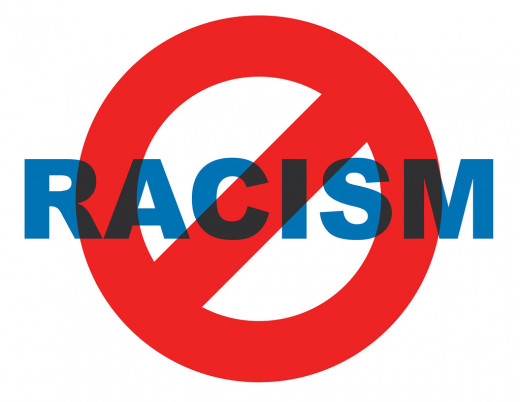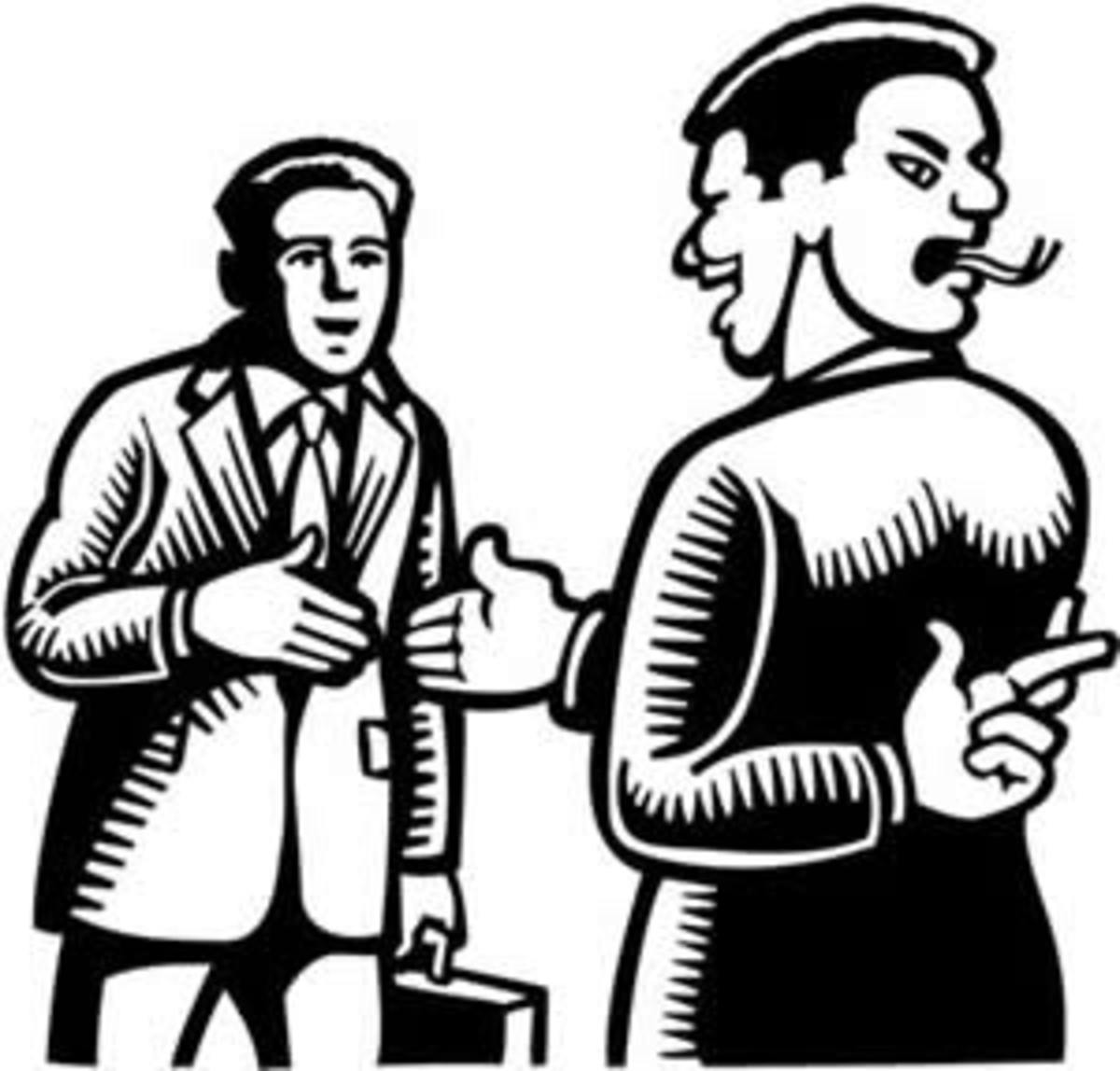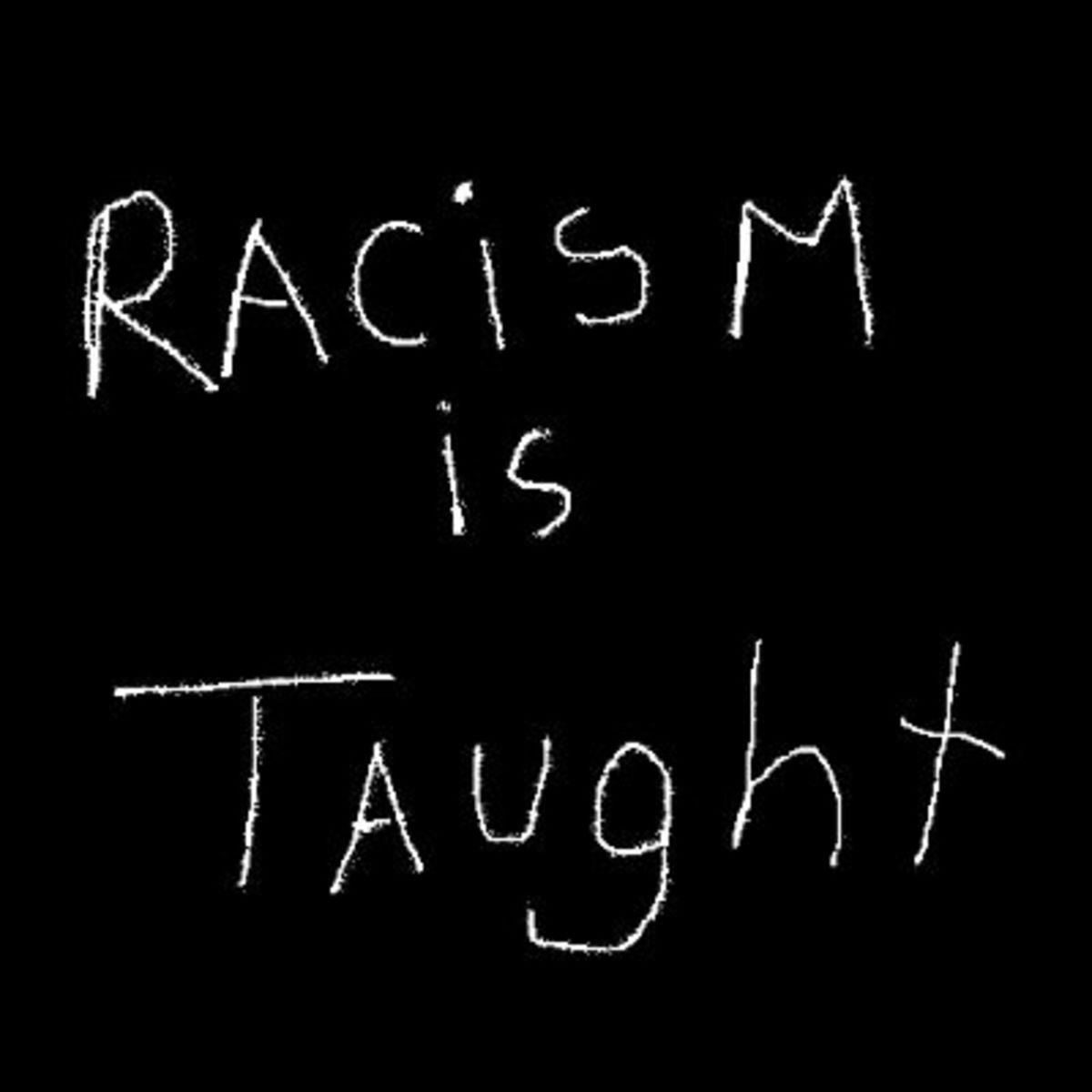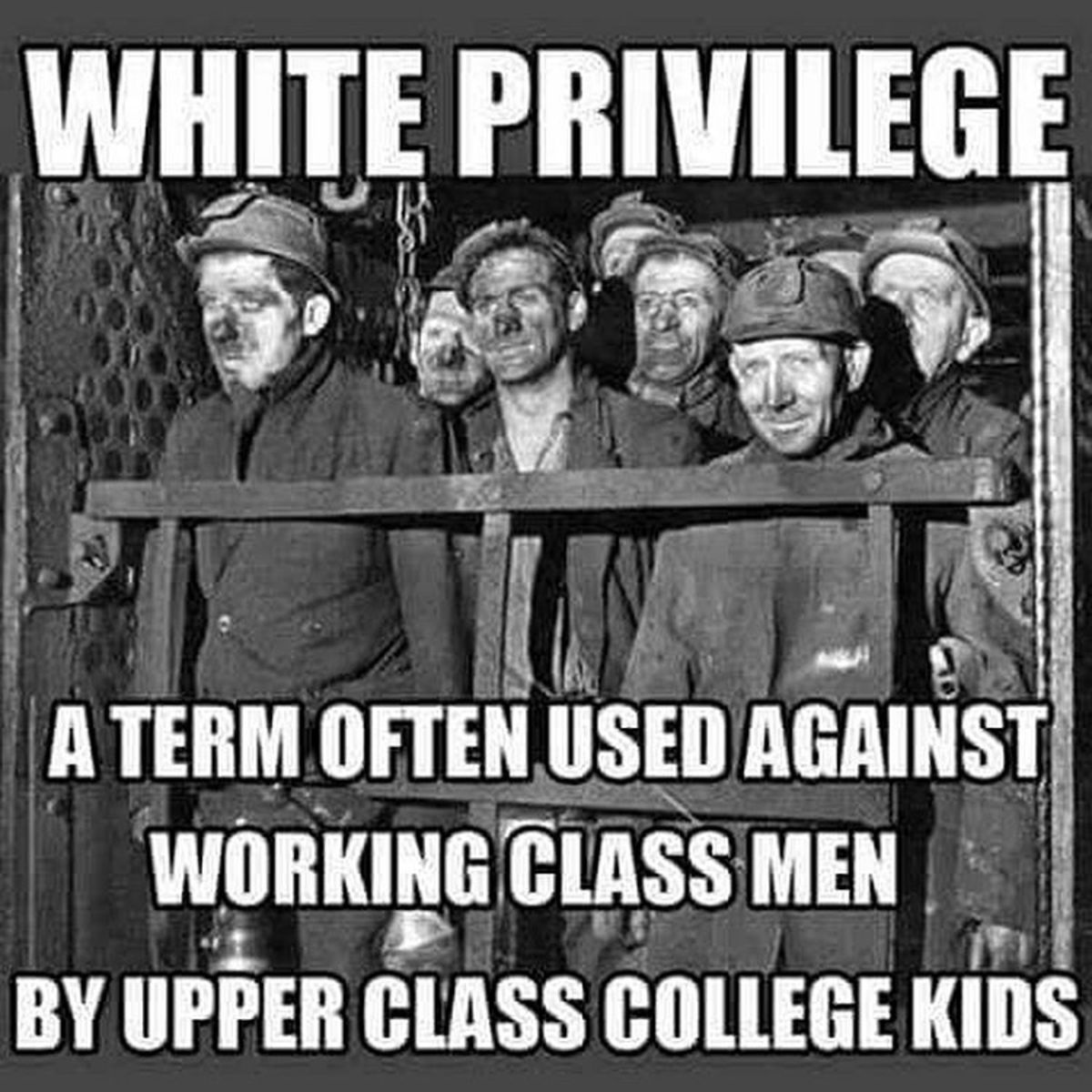What Created Racism?

What is racism?
We probably all know racism is hate for another race, but why? Where does it come from?
Well that’s a little more complicated, but it starts with animal nature, including human nature. Animals that live in groups will protect other members of the group from others even of the same species. Usually these groups are mainly made up of relatives. A dog will protect others in his or her pack, but they are afraid of other dogs. They don’t trust them.
Humans lived in the same kind of individual groups for hundreds of thousands of years. The other early humanoids that came before us lived that way for a few million years. And therefore, “others” were always suspect, to be feared, not to be trusted, rivals for resources, etc.
When humans started farming and started settling in one place things started to change. There were probably always tribes that were friendly toward each other. In fact, when tribes got too big they used to split in to two separate related tribes. So often, one tribe had access to something others didn’t, so trade started, and groups grew into villages, towns, and eventually cities, city states, and eventually countries.
Yet all through our history, “others” remain something to be feared and distrusted. And each village, town, city, and country form a kind of virtual relationship between all the people who identify as citizens of those groups. Hence patriotism and nationalism.
So that’s the roots of racism: “us against them”. A very rudimentary instinct we share with most other animals.
But in humans it gets even more complicated. We distrust/hate others who think differently than we do. Those of another religion or political view are often seen as evil. Groups have long histories with each other. We have different cultures, different languages, We’ve all been someone’s slaves at time or other, and yes, we have cosmetic differences. But that’s all they are.
Genetically there’s no such thing as race among humans. There’s only one race: the human race.
So racists are genuinely scared of or believe a lot of propaganda and stereotypes about the people they hate. And up till now (the last hundred plus years) pretty much everyone was racist toward one group or other. That is to say, they don’t trust them. It’s not just colour tone. Jews were/are hated by several groups, including by most Europeans. All kinds of nonsense propaganda was believed about them. It took Germany to attempt genocide to make the world regret their hate. They may have disliked Jews but they didn’t deserve that.
Westerners also distrust Chinese, Russians, Japanese, etc,etc. Now it’s anyone from Islamic countries, and we all know why. Fundamentalist Muslims hate westerners, both with and without reason. Even westerners hate other westerners. English and French dislike each other and make fun of each other. So do the Dutch and French and Flemish and French.
Recently we started to change. Some people decided others weren’t intrinsically bad. We started building multicultural societies, and therefore we had to make laws against discrimination based on race, colour, sexual orientation, religious belief etc. We want to make racism, sexism etc, socially unacceptable, just like theft and murder .
But we have two factions in our countries: Liberals, and conservatives. Liberals are the faction that started multiculturalism. Conservatives aren’t always happy with it. I’m speaking specifically of Canada, but it applies elsewhere.
Both factions want freedom, but both see it differently.
What is conservatism?
The standard explanation is that conservatives want lower taxes and smaller government. Not a bad ideology. But that’s fiscal conservatism. There’s also social conservatism. The name says it all. Conservatives want to conserve traditions and values . A lot of those traditions and values are religious in nature. Specifically Christian.
Conservatives are therefore usually against adding new civil rights in to law. They are anti abortion, anti gay rights, etc. They are also usually against antidiscrimination laws. Why? Because they take away the right to free speech and the freedom to act as they feel is right. That is to say, keep laws that traditionally discriminated against certain sections of society like women, gays, etc.
In other words, they would prefer to live with only like minded culturally related people, just like 12000 years ago.
And in the west capitalism has also been taken up by Conservatives. Why should my tax dollars go toward helping you? They have an “every man for himself” attitude.
Thus, racists are more likely to be drawn to conservatism, as are the fundamentalist Christians, because it wants to keep all the old traditions. Unfortunately, those are the traditions and beliefs that back up the idea of them against us. No, I’m not saying all conservatives are racists. Far from it. I’m saying most racists are by nature conservative and don’t like change.
And remember, there are two types of conservatism: fiscal and social, and there are degrees of conservatism from small c conservative to ultra right wing.
Humans in general don’t like change, but change is inevitable. It’s a universal constant.
Liberals, also come in two forms: fiscal and social. And you can mix and match. You could be a fiscal conservative but a social liberal or even the other way around. There are also many degrees within liberalism from small l to ultra left wing.
I’m a centralist fiscally, and a liberal socially. To me, freedom and individual civil rights are paramount. I think a multicultural society is the answer to them and us, and the answer to racism.
We are not all likeminded people. If we wanted to be living in that kind of society we’d be back to exclusive societies run by one theocracy or another. There are such countries in the world, and even they are not all like minded, and if you live there you convert, or else. But why would you choose to live there if you weren’t ready to do so?
In a multicultural society it’s the same thing in a different way.. You have all the freedom I have no matter who you are or where you come from. You can practice your religion, culture and whatever you like. But remember, so can I, so can everyone else. You don’t like that? Too bad. That’s the way it works here for the benefit and freedom of all. It’s a social contract we all live by so we all have the most individual freedom we can have.
We all know that a lawless society where everyone is free to do what they like including murder is not a free society. How can you be free if you’re constantly looking over your shoulder in case someone decides to have you for lunch? How do you find time to live freely? Freedom means security.. Thus we create social agreements like: I won’t hurt you if you don’t hurt me. Then we create laws that enforce that agreement protecting us from each other..It’s good for everyone in that it affords us all the freedom from constant fear, and allows us the time to do what we want to/need to do for a better life.
So in a multicultural society your freedom is protected, but the price you pay for your freedom is that you have no right to attempt to take away someone else’s or discriminate against them. There are no “others.” That means to protect religious freedom, no religion can be in charge.
Your religion doesn’t allow sexual orientation other than the traditional? Fine, you’re not being forced to be gay. But people, including you, are allowed to be, if you are. You against abortion? Well don’t have one. It’s your choice. But you have no right to try to force others not to if they deem it necessary.
But should we be taking away people’s right to free speech? Well, nowhere is free speech absolutely free. We have laws against all kinds of speech. You can’t say things about people that aren’t true and designed to ruin them. There are anti slander laws. You can’t entice violence, and you can’t yell fire in a crowded .place just for fun. So yes, culture and society does try to control our behaviour, and if it’s steering us toward a society with increasing individual civil rights and a safer, fairer, more inclusive society, then rightly so.
But it’s often not what is said, but how.
Then came political correctness.
Yes, it was a phrase first created by the communist party in Russia in the 1920s, of course not in English. It meant adhering to the ideals of communism, but it doesn’t anymore. At least not the English version.
As society started to reject racism, conservatives started using the phrase “political correctness” to insinuate that anything that seemed to diminish free speech was akin to communism. And that controversy is still alive today. But today’s version of the phrase political correctness was appropriated by people who are anti racist and who adhere to the theory that racist or sexist remarks advocate and advance sexism and racism, and there should be laws against them, including the language of them..
Clearly it is an attempt to eliminate a type of action from society by making it socially unacceptable. Same has been done with smoking cigarettes as well as a number of other things. It is a tactic that does work to a degree. And making racism/discrimination illegal as I mentioned above, is the same thing: an attempt to make them socially unacceptable by decreeing that they are. And rightly so.
We have to stop thinking like Bronze Age people. We’re all just people, not “others”. Some people are good, some are not, regardless of culture religion or skin tone. Judge people by their actions toward others; nothing else. If we all do that and respect each other’s freedom to believe what we want to and practice those beliefs with like minded people, as long as the practice is legal and doesn’t attempt to undermine other people’s rights, the world will be a better place for all.








